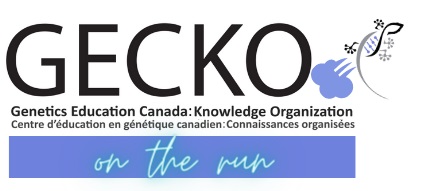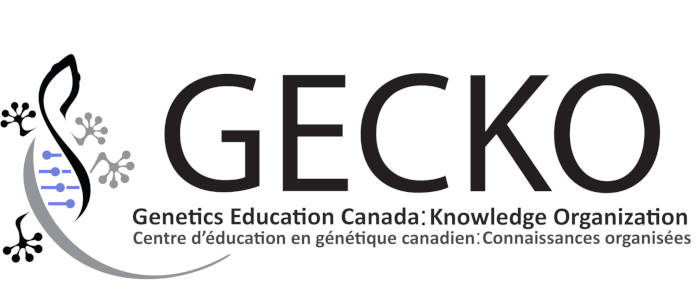
Download the PDF here. Find point of care tools on reproductive genetic carrier screening in Canada here. Link here for an education module with case-based learning.
Consanguinity is defined as a union between two individuals who are related as second cousins or closer. The chance for an adverse outcome in the offspring of a consanguineous union is an estimate based on family history, degree of consanguinity and background population risk. In general, studies have shown that when there is no known genetic diagnosis in the family, first cousin unions are at a 1.7-2.8% additional risk above the general population risk of 2-3% to have offspring with a congenital anomaly.1 The risk for a more closely related union is higher and for a more distantly related union is lower. The best tool for counselling a couple about consanguinity is a detailed family history. Genetic testing based on ethnicity, and standard prenatal screening should be offered as for non-related couples. Referral for genetic consultation can be considered if appropriate based on family history and/or screening results.
Reviewed Oct 2023
What is consanguinity?
One billion of the current global population live in communities with a preference for consanguineous union. Consanguinity is defined as a union between two individuals who are related as second cousins or closer.2
In North African, Middle and West Asian, and South Indian populations (and immigrants from these communities) about 20-50% of all unions are consanguineous and first cousin unions account for about 1/3 of all marriages. Reasons for preferring a consanguineous union can include cultural continuity, family solidarity, or reduction of uncertainty associated with health and financial issues. Primary healthcare providers are likely to see couples in consanguineous unions from these communities who are seeking preconception/prenatal counselling.2
Red Flags to consider testing or genetic consultation1,2
- Take a detailed 3-4 generation family history
Offer referral to your local genetics centre if family history is positive for congenital anomalies, intellectual disability or suspected genetic condition, as with non-related couples
- Offer genetic screening based on ethnicity
Offer referral to your local genetics centre if both members of the couple are carriers of the same condition, or if both are carriers of a hemoglobinopathy, even if each is a carrier of a different type of hemoglobinopathy, as with non-related couples
- Offer standard prenatal care and pediatric follow-up
What does consanguinity mean for my patient?
The chance for an adverse outcome in the offspring of a consanguineous union is not an absolute number but rather an estimate based on family history, degree of consanguinity and background population risk.1
In general, studies have shown that when there is no known genetic diagnosis in the family, first cousin unions are at a 1.7-2.8% additional risk above the general population risk of 2-3% to have offspring with a congenital anomaly, for example a congenital heart defect, which is the most common multifactorial congenital anomaly.1,2 The risk for a more closely related union is higher and for a more distantly related union is lower. There is an increased risk of autosomal recessive conditions in the offspring of consanguineous unions. The closer the biological relationship between the couple, the higher the chance their offspring will inherit identical copies of one or more detrimental recessive genes from each parent.2 It is unclear whether consanguinity increases the risk for later onset complex disorders such as diabetes or cardiovascular disorders.1,2
There is a 3.5-4.4% increased risk (above population risk) for children of consanguineous unions to die before the age of 10 years.1,2
The first step and best tool for counselling a couple with consanguinity involves taking a detailed family history. A four-generation pedigree is ideal for documentation and discussion with the patient.1,2 Patients can confuse familial relationships such as second cousins with first cousins once removed, and, in some cultures, non-biological relatives may be referred to as “uncle” or “aunt” and can be confused with blood relatives.1 Download the GECKO point of care tool with family history red flags that may suggest a genetic consultation.
When taking the family history, be specific in your questions and note:
- Offspring, siblings, parents, grandparents, aunts, uncles, nieces, nephews, and first cousins of your patient, as appropriate
- Ethnicity of all grandparents
- Congenital anomalies or birth defects
- Early hearing and/or vision impairment
- Failure to thrive
- Intellectual disability, learning disability, developmental delay or regression
- Inherited blood disorders (e.g. thalassemia)
- Unexplained neonatal or infant death
- Seizure disorder
- Undiagnosed severe conditions
Ethnicity-based screening
Certain genetic disorders are more common in populations likely to prefer consanguineous unions (e.g. hemoglobinopathies). Screening for carrier status is recommended by the Society of Obstetricians and Gynaecologists of Canada (SOGC) Genetics Committee and the Canadian College of Medical Geneticists (CCMG) Clinical Practice Committee for individuals belonging to population groups known to have an increased risk for carrying certain genetic disorders. Preconception counselling and testing is recommended in order to arrange for prenatal testing if appropriate.3 See the GECKO Point of Care Tools for more on reproductive genetic carrier screening in Canada.
References
[1] Bennett RL, Motulsky AG, Bittles A, Hudgins L, Uhrich S, Lochner Doyle D, et al. Genetic counseling and screening of consanguineous couples and their offspring: recommendations of the National Society of Genetic Counselors. J Genet Couns. 2002; 11(2):97-119.
[2] Hamamy, H. Consanguineous marriages: Preconception consultation in primary health care settings. J Community Genet. 2012; 3:185-192.
[3] Wilson RD, De Bie I, Armour CM, Brown RN, Campagnolo C, Carroll JC, et al. Joint SOGC-CCMG opinion for reproductive genetic carrier screening: an update for all Canadian providers of maternity and reproductive healthcare in the era of direct-to-consumer testing. J Obstet Gynaecol Can. 2016; 38(8):742-762.e3.
Resource: Consanguinity/Endogamy Resource: http://consang.net
Authors: S Morrison MS CGC, JC Carroll MD CCFP and JE Allanson MD FRCPC
Disclaimer:
· GECKO is an independent not-for-profit program that does not accept support from commercial or non-academic entities.
· GECKO aims to aid the practicing non-genetics clinician by providing informed resources regarding genetic/genomic conditions, services and technologies that have been developed in a rigorous and evidence-based manner with periodic updating. The content on the GECKO site is for educational purposes only. No resource should be used as a substitute for clinical judgement. GECKO assumes no responsibility or liability resulting from the use of information contained herein.
· All clinicians using this site are encouraged to consult local genetics clinics, medical geneticists, or specialists for clarification of questions that arise relating to specific patient problems.
· All patients should seek the advice of their own physician or other qualified clinician regarding any medical questions or conditions.
· External links are selected and reviewed at the time a page is published. However, GECKO is not responsible for the content of external websites. The inclusion of a link to an external website from GECKO should not be understood to be an endorsement of that website or the site’s owners (or their products/services).
· We strive to provide accurate, timely, unbiased, and up-to-date information on this site, and make every attempt to ensure the integrity of the site. However, it is possible that the information contained here may contain inaccuracies or errors for which neither GECKO nor its funding agencies assume responsibility.


